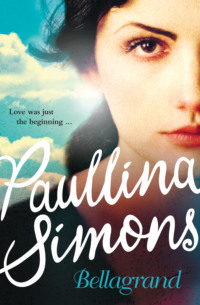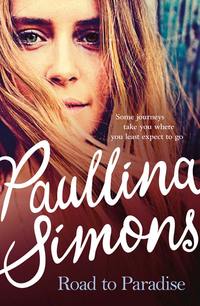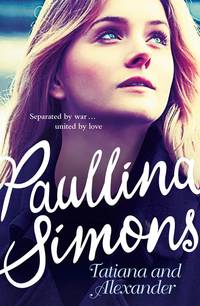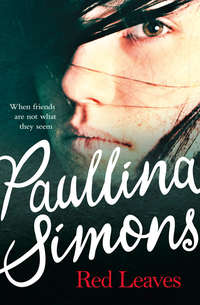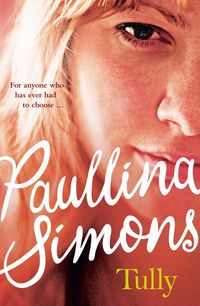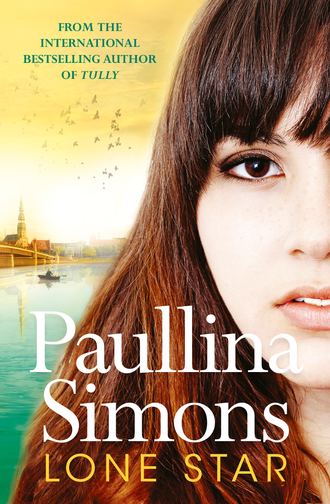
Полная версия
Lone Star
It was a challenge for the girls to keep their boyfriends in school. It was Chloe who had finally hit on the winning combination of words: “Do you think my mother and father would ever allow me to hang out with high school dropouts?”
That worked, though not as instantly as Chloe had hoped, alas.
So … the senior year passed, truck still broke, and Janice not only had to drive to work and shop for the family, but share her inadequate station wagon with two restless boys with divergent friends, interests and schedules. To make money, the boys shoveled snow, cut grass, did shopping for the infirm, Blake mostly, because Mason was at varsity. Fast forward to today when they were hopping off buses and yammering on about dreams. You had to hand it to them. Those two were single-minded in their pursuits. All their pursuits.
“Chloe, speak up. Listen to what I’m saying. Why isn’t it a good story?” Blake always got irked by her tight-lipped approach to his shenanigans.
“Because so far you haven’t told me anything I’d want to read,” she said.
“I haven’t stopped speaking!”
Chloe opened her hands in a my-point-precisely. “Who are the main characters?”
“It doesn’t matter who they are. Can I finish before you judge?”
“You mean you haven’t finished? And I’m not judging.”
“You so judge. That’s your biggest problem.”
“I’m not—”
Blake put his finger out, nearly to her mouth. “The premise of my story is—are you listening? Two dudes run a junkyard.”
“That part I got.”
“They do say write about what you know.”
“I. Got. That. Part.”
“Two dudes run a junkyard and one day they find something awful.”
“Like what? All you cart away is Wise potato chips and Oreo wrappers.”
“And condom wrappers.” Blake grinned, slowed down, and threw his big arm around Chloe’s shoulder.
“Hannah, control your boyfriend.” Chloe pushed him away. “But okay, even still. Where is the story?”
“Can there be anything more full of story possibilities than a ninety-year-old woman throwing out a Hefty bag full of used condoms?” Blake laughed.
“Not used condoms,” Mason corrected him. “Condom wrappers.”
Chloe glanced at the silent Hannah for support. “Can we move on? What else have you got?”
“We don’t know yet,” Mason said. “Hannah, you think it’s good so far, don’t you?”
“So far there’s nothing!” That was Chloe.
“He wasn’t asking you!” said Blake.
They had ten minutes before they reached home to hammer it out. It wasn’t enough time. Blake pulled them off road, away from home and onto the train tracks that ran through the woods and divided their small part of the lake from the better, larger part. Arms out, backpacks on, they balanced on the rusty tracks and skipped on the ties.
Writing a story for money! What a thing. Acadia’s first prize was ten thousand dollars. Chloe knew the Flannery O’Connor Award for Short Fiction had been around longer and was certainly more prestigious, but it paid only a thousand dollars, and you had to write at least forty thousand words for it. No matter how bad one was at math, dividing forty thousand words into a thousand bucks was an awful return. “All work and no pay,” said Mason, and laughed for five minutes at his own joke.
But here—ten thousand dollars for a novella. Blake didn’t even know what a novella was until Chloe told him. To the brothers, a sum that large was the lottery. It was a new truck and the start of their own business. It was the rest of their lives. They acted as if they found it lying under a tree in a suitcase. All that was left to do was count the money.
And little naysay-y Chloe was not allowed to even mention that:
1 They had no story.
2 They were not writers.
3 There would be at least five hundred other applicants, who a. might have a story and b. were writers.
4 One of those applicants might be Hannah who most certainly had stories, a number of them.
5 A new truck was more than ten thousand dollars.
Chloe couldn’t help herself. She had to say something. If only she could learn to keep quiet, like Hannah, or Mason, things would be so much better in her life.
“Who are the junkyard boys?” she asked.
“We are. Blake. Mason. We’re ambling along, asking for no trouble, and suddenly—wham! Trouble comes.”
“Wham,” said Chloe.
“Blake’s right,” Mason said. “We’ve found some awful things.”
“Like what?”
“Dead rats.”
“Rats are good,” she said. “But then what? Someone not wanting dead rats in their house is hardly a story. It’s more like a truism.”
“We found some jewelry too once.”
“Jewelry is good. Then what?”
“Okay, maybe not jewelry, then. Something else.”
Chloe glanced at Hannah, walking on the side of the tracks, away from the three of them, barely listening. Blake jackhammered away at Chloe’s concrete skepticism. “They discover something awful. Something that changes everything. Mason, what can they find that is so monumental and terrible that it changes everything?”
“True love?” Chloe smiled.
“It’s not that kind of story, my dear Haiku,” Blake said with twinkling amusement. “This is a man’s story. No room in it for lurv, no matter how terrible and true. Right, cupcake?” Jumping off the rail, he jostled Hannah along the pebbles.
“Right,” she said.
Mason had new suggestions. “We found an old suitcase once. It was full of snakes. And once we found a live rabbit.”
“Yes,” Blake said. “He was delicious. But Chloe is right. We need a story, bro.” He smacked his forehead. “Got it. How about a human head in the trash?”
Chloe didn’t even blink this time. Almost as if she’d seen a human head in the trash before. “Nice,” she said. “And then?”
Blake shrugged. “Why do you care so much what happens next?” he asked.
She could tell he wasn’t taking it seriously. What the boys did for a living—that was work. Here, all they had to do was come up with a few words and place them in the sweet order that assured victory. Blake was convinced it was child’s play.
“You’re right, we’re all Philistines with our slavish devotion to plot,” Chloe said. “Be that as it may.”
“Yes. The writer drones on about what happens next and as soon as you the reader guess what’s coming, you either fall asleep or want to kill him.”
“So the trick is what? Never give the reader what she wants?”
Blake shook his head. “No. Give her what she didn’t even know she wanted.” He acted as if he knew what that was.
They turned for home. “They find a human head,” he went on, as he and Chloe ambled down the narrowing pine path leading home, Hannah and Mason behind them. A few hundred yards downhill, the dirt road tapered to one lane on which a truck or a car or people could pass—one at a time. “But not a skull.” Blake glanced back and widened his eyes at Hannah. “A head. That’s been recently separated from the body. It still has flesh on it. And they don’t know what to do. Do they investigate? Do they call the cops?”
“I think they should investigate,” Mason said, running up. “Investigations are fun.”
“There’s danger in it.”
“Danger is good,” Hannah said from behind. “Danger is story.”
No, Chloe wanted to correct her uncorrectable friend. Danger is danger. It’s not story.
Blake went on ruminating. “What if asking too many questions of the wrong people puts them in mortal danger?”
Chloe wondered if there was any other kind.
“Someone needs to shut them up. But who?”
“Obviously those who separated the head from the body.”
“But why would someone separate the head from the body?” Mason asked.
“I don’t know yet. But I really think we got us something here. Haiku, what do you think?”
“I say keep working on it.” Chloe used her most discouraging tone.
“Wait! I got it!” Blake exclaimed. “What if they find a suitcase? Yes, a mysterious suitcase! It’s blue. Oh my God, I got it. That’s my story.” Blake stopped and turned to the girls, beaming, his whole face flushed and thrilled. “The Blue Suitcase. What do you think?” He clapped. “It’s flipping awesome!”
Hannah smiled approvingly.
Chloe caught herself shrugging. “It’s a good title for a mystery,” she said. “But a title is not a story. What’s in the suitcase? Once you figure out that part, Blake, then you’ll have yourself a story.”
Blake laughed with characteristic lack of concern for details. He was a big picture guy. “James Bond always goes to a foreign country to solve mysteries and catch the bad guys,” he said. “Some fantastic exotic locale full of drink and women and danger.”
Chloe made a real effort not to rub her forehead. She had a lot of practice hiding exasperation from her mother, but this was on a different scale altogether. “James Bond is a government spy. He kills for money. He doesn’t rummage through the trash for severed heads.”
“Foreign country!” Mason exclaimed. “Blake, you’re a genius.”
Blake’s entire peacock tail opened up in kaleidoscope green.
“But wait,” Mason said. “You and I have never been to a foreign country.”
Blake blocked the girls’ way, smiling meaningfully at them. “Not yet,” he said.
The girls remained impassive. Only Chloe twitched slightly. Oh no! she thought. He doesn’t mean …
“We’ll go to Europe with you,” Blake said. “Mason’s right, I am a genius. The answer to our mysterious suitcase is in Europe. Oh man, this is going to be fantastic. And we’ve only been at it for five minutes. Imagine how good it’ll be when we spend a few days on it.” Blake thumped his flannel plaid chest. “We could win the book prize.”
“What book prize would that be, Blake?” Chloe said.
“I don’t know, Chloe. The prize they give the best book of the year. The Oscar for books. The Grammy, the Emmy.”
“The Pulitzer?”
“Whatever. That’s not the important part. To write something people will love, that’s the important part.”
Chloe leaned in to Hannah. “Did your crazy boyfriend just say he wants to go to Europe with us?”
“I’m sure that can’t be right,” Hannah, her expression frazzled, whispered back. “I’ll talk to him—”
Blake pulled Hannah away from Chloe. “Hannah, when are you two flying to Barcelona?”
“I don’t know,” Hannah replied. “Chloe, when are we flying?”
“I don’t know,” mumbled Chloe.
“Mason, that’s where we go, bro. Barcelona! Our story will climax there.” Blake laughed. The brothers high-fived and bumped shoulders.
“I thought you said it wasn’t that kind of story,” Chloe cut in.
“If it ends in Barcelona, Haiku, it’ll have to be a story for all seasons. Isn’t that where they have the running of the bulls?”
“Oh dear God. No. That’s Pamplona.”
“Wait,” Hannah said. “Blake, you’re not seriously thinking of coming with us?”
“We’re done thinking. We’re coming, baby!”
Mason looked shocked. “We’re going to Europe? You’re bullshitting me.”
“Mason, do I come up with the best ideas or what?”
Mason was at a loss for words.
“Blake …” Finally Hannah became actively engaged in the conversation. “Think about it for a minute. You’re not serious about writing a story, are you? The contest is open to all Maine residents. That’s a lot of competition. Just from our school, there’ll probably be at least a hundred entries. Everyone on our literary magazine is submitting a story.”
“Hannah, have you read the literary magazine?” said Blake, swinging his arms around, bouncing down the road. “It’s called Insanity’s Horse, for heaven’s sake.” He laughed. “Just for that title alone, those fools should be disqualified from participating. Do you remember the magazine’s April thought of the month? The pastiche of the pyramids implementing primal passion is a prolix representation of all phallic prose. I got your phallic prose right here. Yeah,” he said, merry and intense. “I’m not worried.”
How did this happen? One minute ticked by, and before it was up, Blake and Mason had climbed aboard the girls’ slow-chugging teenage dream.
Hannah stopped listening. She pulled on Chloe to slow down. “Now I really have to talk to you,” she said. “Come by before dinner?”
“Is it about Barcelona?” Chloe looked up into Hannah’s flat expression.
Hannah blinked. “No and yes. Do you have your passport yet?”
Chloe didn’t reply.
“Chloe! I told you—it takes two months to get a passport. Come on. Do you want to blow it?”
“Of course not. But that’s easy for you to say—you’re eighteen. I have to ask my parents to sign for my passport.”
“So?”
“Well, I’ll have to tell them I’m going first, won’t I?”
“I can’t believe you haven’t told them!”
“Yeah, well.” Chloe couldn’t believe a whole bunch of things.
Blake was in front of them, panting, eyes blazing, his body heaving. “So what do we have to do to get a passport?”
“Go to the post office,” Hannah said. “But take Chloe with you, because she doesn’t know how to get one either.”
“I know how. I just …”
Hannah batted her lashes. “Are you guys really going to come with us? Because don’t get our hopes up and then not come. That’d be mean.”
“I never disappoint you, pumpkin, do I?” Grabbing the slender Hannah, Blake pretended to dance with her and stepped on her feet. She yelped.
“Blake, you do know where Barcelona is, right?” Hannah said, her arms around his neck. “In Spain. And you know where Spain is, right? In Europe. As in—on another continent. As in, you need not just a passport, which costs upward of a hundred bucks, but also a plane ticket, and train tickets, and maybe, oh, I don’t know—some lodging and food money.”
Mason began to look doubtful, but Blake shrugged with gleeful indifference. “You know what they say, babycakes.” He squeezed her. “You gotta spend money to make money. It’s like the ten grand I’m getting for my story. We can’t start our own business till we win this thing. And we can’t win this thing till we do this other thing.”
“This other thing,” said Chloe, “meaning horn in on my lifelong dream?”
“Exactly. Mase, let’s jet. We gotta go get ourselves some passports. We have no time to lose.” As they sped up, their boots kicked up dust in a bee cloud. “Where’s this post office, anyway?” Blake called back.
“Are you joking? You’ve never been to the Fryeburg post office?”
Hannah poked Chloe. “You’ve never been there either, missy.”
Chloe poked Hannah back. “Yes, I have, stop it.”
Blake pulled on his brother. “Let’s hoof, bro. Should we pick you up, Chloe?” The Hauls lived three houses up from Chloe, around the pond through the scraggly pines and birches.
“Yeah, Chloe,” Hannah said, sticking a finger into Chloe’s back. “Should they pick you up to go get your passport?”
“It’s okay,” said Chloe, swatting Hannah’s fingers away. “I’ll have my mom take me.”
The girls gazed after their young men, and then resumed walking. Hannah shook her head—in distress? In wonderment? Chloe couldn’t tell. “I guess I’ll be going to Spain with my boyfriend and your boyfriend, but not with you.”
“Har-de-har-har.”
“You think I’m being funny? You can’t start your adult life being such a chicken, Chloe. What are you afraid of? Be more like me. I’m not afraid of anything.” She said it as if she didn’t mean it.
But all Chloe heard was be more like me. Ain’t that a kick in the teeth, she thought, stiffening. They were almost at the clearing in front of Chloe’s green bungalow. Hannah slowed down, as if she wanted to linger, but Chloe sped up as if that was the last thing she wanted. “I have to be diplomatic,” she said. “I need their permission to go. I can’t just present them with an I’m-going-to-Europe vaudeville routine.”
“If you don’t start acting like an adult, why should they treat you like one?”
How much did Chloe not want to talk about it. It wasn’t that Hannah was wrong. It was that Hannah always said obvious things in such a way that made Chloe not only think her friend was wrong, but that she wanted her friend to be wrong.
“I’ll talk to them tonight,” she said, hurrying across her pine needle clearing.
“I wouldn’t tell them about Mason and Blake just yet.”
“Ya think?”
Since Mrs. Haul and Lang went shopping on Fridays, Chloe had a feeling that her silence on the subject might be short-lived.
“Okay,” Hannah said, “but start slow. Don’t make your mother go all Chinese on you. You always make her nuts. First dangle our trip, then wait. The boys might be pie in the sky anyway. Where are they going to get the money from? It’ll pass, you’ll see.”
Chloe said nothing. Clearly Hannah had no idea who her boyfriend was. There was no talking Blake out of anything. Short fiction indeed! And as if to prove Chloe’s point, Janice Haul’s Subaru came charging toward them from around the trees, Blake rolling down his window, slowing down, honking.
“We’re off to get our passports!” he yelled. “See ya!”
Chloe turned to Hannah. “You were saying?”
“All right, fine. But don’t tell your mom about them yet.”
“What did you want to talk to me about?” Chloe asked. Only a flimsy screen door separated Chloe’s mother’s ears from Hannah’s troubles.
Hannah waved her off. “Just you wait,” she said, all doom and gloom.
2
Sweet Potato
“I’M IN THE KITCHEN,” HER MOTHER CALLED OUT AS SOON as Chloe opened the screen door. A statement of delightful irony since they lived in a winterized cabin that was one room entire, if one didn’t count, which Chloe didn’t, the bathroom, the two small bedrooms and the open attic lost where Chloe slept.
I’m in the kitchen, Lang said, because this month she was baking. Last winter, her mother was scrapbooking so every day, when Chloe came home, she would hear: I’m in the dining room.
The previous fall, her mother decided to become a seamstress and told Chloe that from now on she was sewing all of her daughter’s clothes, in the craft room.
When she was tracing out the family tree on her new Christmas-present software, Lang was in the computer room.
During the summers, Lang said nothing, because she was outside, fishing and tending her vegetable garden, voluminous enough to supply tomatoes to all eight homes around their part of the lake. Bushels of zucchini and cucumbers went with Chloe’s dad to work.
Chloe’s mother Lang Devine, née Lang Thia of Chinese descent from Red River, North Dakota, reinvented herself constantly into something new. She had wanted to be a dancer when she was young, but then she met Jimmy and wanted to be a wife. After many years as a wife, she wanted to be a mother. And after many years as a mother of one, she wanted to be a mother of two.
Jimmy’s favorite, he said, was when Lang took up tap dancing. He built her a wooden platform; she bought herself a pair of black Capezios size 5, some CDs and taught herself how to tap dance. That was noisy.
And not as delicious as baking, which was the current phase, and Chloe’s favorite after gardening. Jimmy Devine liked it, too, but groused that he was gaining two pounds a week because of Lang’s buttery hobby. Chloe thought her dad might teasingly mention the extra pounds Lang herself had put on around her five-foot frame, now that she wasn’t tap dancing. But no. Just last week, Jimmy said as he dug into Lang’s cream puffs (made with half-and-half, not milk, by the way), “Sweet potato, how do you bake so much and yet stay so thin?”
And Chloe’s mother had tittered!
How to explain to both her parents that it was unseemly for a grown woman of advancing years, married for nearly thirty, to titter when her husband paid her a half-hearted compliment by calling her the name of a red starchy root vegetable?
This afternoon Chloe walked in slowly, set down her school bag, pulled off her boots, and walked down the short corridor, past her parents’ bedroom, past the bedroom that no one ever went into anymore, past the bathroom, into the open area to put her lunchbox on the kitchen counter where it would be cleaned and prepped for tomorrow. Something smelled heavenly. Chloe didn’t want to admit it, because she didn’t want to encourage her mother in any way. What her mother needed was a tamping down of enthusiasm, not a fanning of the fire. Her mother and Blake shared that in common.
“Doesn’t that smell divine?” Lang giggled, turned around, and with floury hands, patted Chloe on both cheeks. “I only make divine things for my divine girl.” One of the few things Chloe tolerated about her mother was that she was short, making even Chloe seem tall by comparison.
Chloe brushed the white powder off her face. “Whatchya makin’?”
“Linzer tarts.”
“Doesn’t smell like Linzer tarts.” Chloe glanced inside one of the pots on the stove.
“Raspberry jam. I made it from scratch this afternoon for the tarts. It’s still warm. You want to try?”
Chloe did want to try, so much. “No, thank you,” she said. “I’m full.”
“Full from lunch four hours ago?”
Lang got out some orange juice, a yoghurt, unboxed some Wheat Thins, opened some cheddar cheese, washed a bowl of blueberries, and set it all in front of Chloe sitting glumly at the table. She brought the long wooden spoon half-filled with warm jam to Chloe’s face. Chloe tasted it. She had to admit it was so good. But she only admitted it to herself. She wouldn’t admit it to her overeager mother. “What’s for dinner?”
“I’m thinking ratatouille.”
“What?”
“You’ll see. It’s a vegetable stew, I think. But it could be a condiment.” She chuckled. Honestly, why did Chloe have to be the only serious one in her house?
“Dad needs meat.”
“Yes, don’t worry, we’ll feed the carnivore some pork chops. I found a spicy new recipe. With cumin. How was school?”
Chloe desperately needed to talk to her mother. She didn’t know where to start. That she didn’t know how to start was more vital. She tried not to be irritated today by her mother’s earnest round face, unmade-up and open, high cheekbones, red mouth, smiling slanting eyes, affectionate gaze, her short black hair straw straight like Chloe’s. Tell me everything, her mother’s welcome expression said. We will deal with everything together. Chloe tried hard not to sigh, not to look away, not to wish however fleetingly for Hannah’s mother, the thin, pinched, absent-minded and largely absent Terri Gramm. “School’s good,” she said.
That’s it. School’s good. Nothing else. Open book, look down into food, drink the OJ, don’t look up, don’t speak. Soon enough, the hobby called. Jam would have to be cooled, the Linzer tarted, the ratatouille stewed.
Trouble was, today Chloe needed to talk to her mother. Or at least begin to try to talk to her. She needed a passport. Otherwise all her little dreams were just vapor. She had kept her dreams deliberately small, thinking they might be easier to realize, but now feared she hadn’t kept them small enough.
“Are you going to write a story too?” her mother said. “You should. Mrs. Mencken told me about the Acadia prize. Ten thousand dollars is amazing. I bet Hannah is going to write one. She fancies herself to be good at anything. You will too, of course. Right?”
Now who wouldn’t be exasperated? What kind of a mother knew about things that happened that day in fourth period English, before her child even had a chance to open her mouth? Chloe managed to contain her agitation. After all, her mother had unwittingly offered her the opening she needed.
“You discussed it with Hannah and your boys?”
“Not necessarily,” Chloe replied. Disgusted is what she was. “Why would you say that?”



